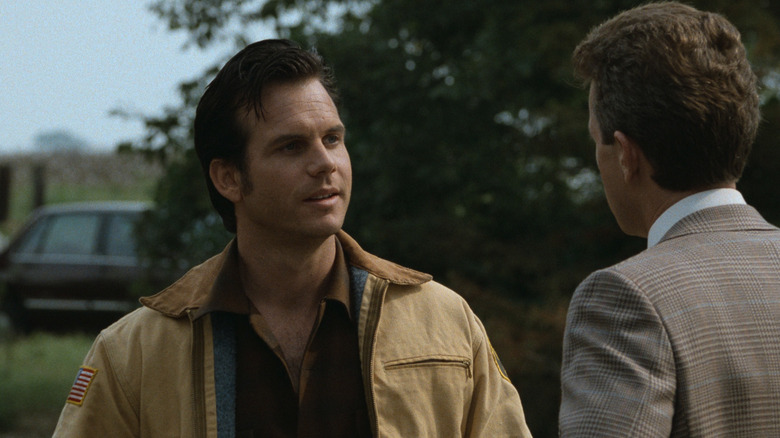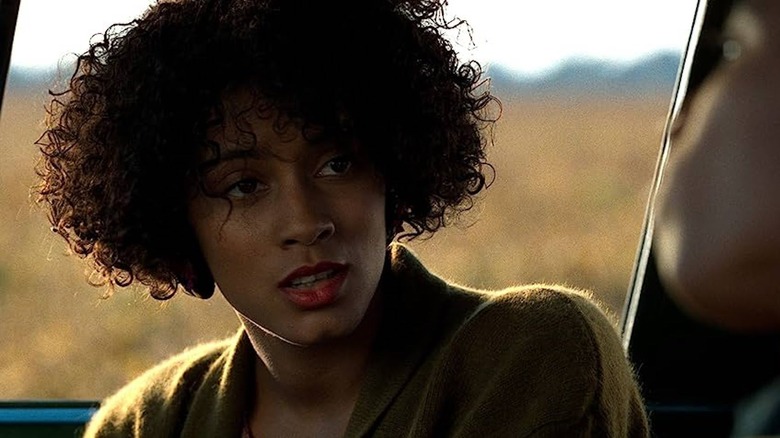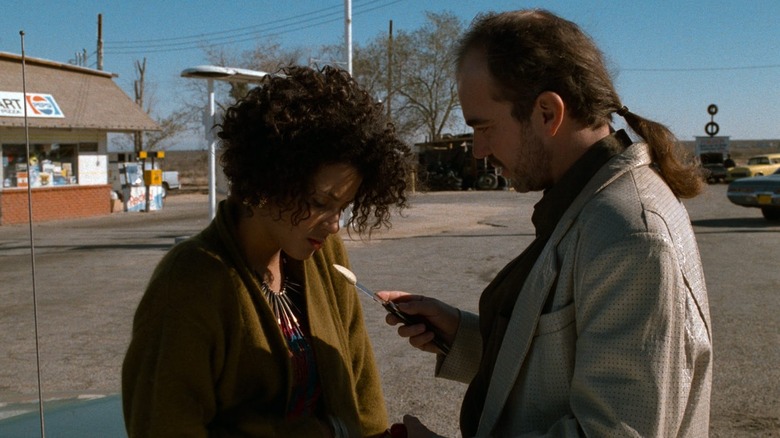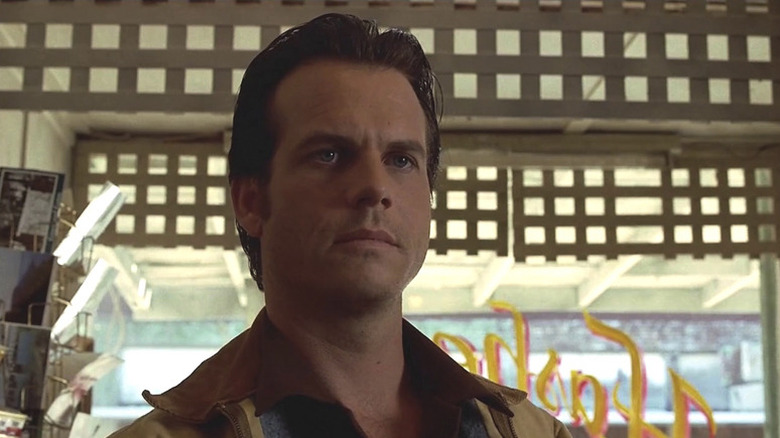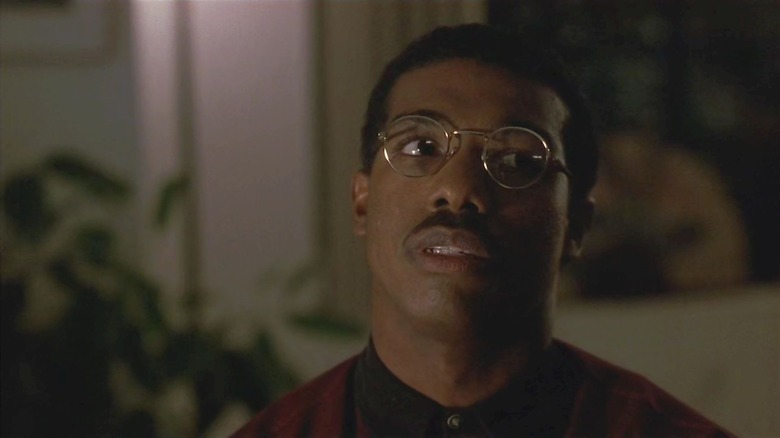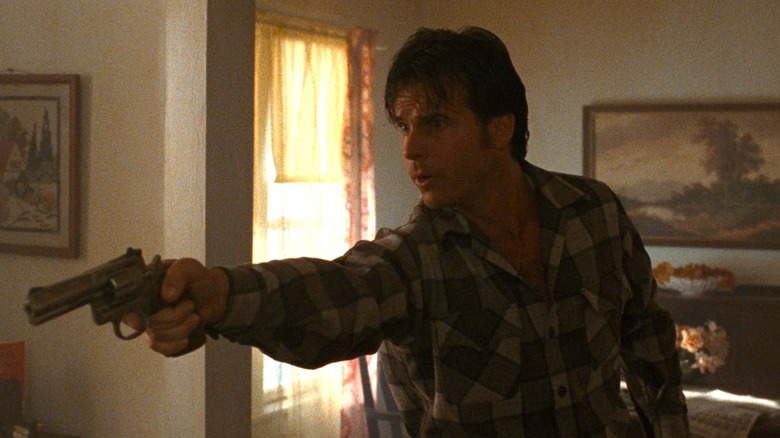Director Carl Franklin On One False Move And Turning Bill Paxton Into A Leading Man [Exclusive Interview]
31 years after its initial theatrical release, Carl Franklin still can't believe "One False Move" happened.
The actor-turned-director took a crackerjack screenplay by a pair of struggling writers named Billy Bob Thornton and Tom Epperson, and turned what was supposed to be a direct-to-video thriller featuring a couple of familiar faces (Bill Paxton and Cynda Williams) into a buzzy critical darling. After a brief theatrical run, the film earned five Independent Spirit Award nominations, with Franklin taking home the trophy for Best Director.
Despite this acclaim, "One False Move" has remained an under-the-radar cult favorite amongst neo-noir fans, perhaps because it lacks the Coen Brothers' archness or the overripe sensuality of Lawrence Kasdan's "Body Heat." It's a quietly surprising, yet plenty violent thriller about a trio of criminals who, after committing a string of vicious murders, flee Los Angeles for a backwater Arkansas town run by police chief Dale "Hurricane" Dixon (Paxton). When two LAPD detectives (Earl Billings and Jim Metzler) show up to catch the murderers, a starstruck Hurricane desperately tries to impress his big-city visitors (who think he's a doofus).
This is the film that made Paxton a leading man, and should've made Michael Beach a star (his Pluto is one of the most chilling screen psychopaths I've ever run across). Tonally, it's a miraculously seamless blend of cold-around-the-heart nastiness and genuinely heart-rending drama. Franklin's taut, emotionally acute direction launched a career that's included neo-noir gems like "Devil in a Blue Dress" and "Out of Time," and loads of prestige television (e.g. "The Pacific," "House of Cards" and "Mindhunter"). I was thrilled to discuss this masterpiece with Franklin in conjunction with the Criterion Collection's brand new 4k release.
Note: This interview has been lightly edited for clarity and brevity.
'I think it actually, in some ways, turned out better than I expected'
I'm so excited to talk to you about this movie. It turned me around when I was a freshman in college. I wanted to be a filmmaker and this movie clarified a lot of things about my interests, about crime movies, about the way I wanted to tell a story. For this to be your first real feature, how did it feel like coming out of the gate with material like this?
It was, as you said, it was my first real film because I'd done some work for Roger Corman. The circumstances of those films were such that you couldn't really say that that was your best work. The script was strong and I also realized that there was a style that it was suggesting, and it actually was in the vein of what I wanted to do. I think it actually, in some ways, turned out better than I expected because I had never done anything like this before. It was a rewarding experience.
What did you learn on those Concorde pictures [for Corman] that you were able to apply to this?
You learn how to put something together that cuts together. I was shooting in foreign countries. I was shooting in Peru and I shot in the Philippines. I also had one in the United States. The crews that Roger worked with in the Philippines and in Peru were not the kinds of crews that you would work with here in the United States. They were not the best of the people who were making movies in Peru or even in the Philippines. There were a lot of times you had to improvise just to get what you were trying to get. Most of the time you didn't get it, but you knew that it was possible. I learned how to think on my feet. We went over with four actors and myself ... Todd Field being one of those actors. You learn how to work with people who had not had any experience with acting. That was a valuable lesson because even at the American Film Institute where I had studied, we had a deal with SAG. We usually had people who had some experience and who actually could handle the material that you were giving them.
But on those Roger Corman movies in the Philippines and in Peru, especially Peru, where we were trying to represent four different nationalities — Russians, Panamanians, Cubans, and Americans — there just weren't those diverse ethnicities available. We had to get people who looked European who could play Russian, and there were some teachers who were teaching in Peru and there were also students there. We used some of those people who had never acted before. It gave me an opportunity to learn how to work with folks who had not had a lot of experience. I found out that in some instances, I kind of wanted to do that in some places, because sometimes it felt like it was actually an asset.
'There are these gifts that present themselves...'
How much did the script for "One False Move" change after you came on?
Not fundamentally. There were some within-scene changes, just to make it consistent. Billy Bob and Tom Epperson are two distinctly different personalities. They write separately. They don't write together. They split the script up and write separate scenes — or that's how they used to work. There was a difference in the tone. I did some work on it, Billy Bob did some work on it, just to even it out some, but there really weren't any real fundamental changes. It was basically the script that was there when I came on.
And on set, with Billy Bob being a writer, what was your relationship like with him?
Well, it was interesting. I went to him at one point, because it was his material, and he said, "I'm an actor now." He said, "You do what you got to do." And that was really encouraging. He was not just easy to work with, he was a lot of fun to work with. I had a really good time working with him. On the spot, there are always things that you think about. There are these gifts that present themselves, little things here and there that you want to include. Because the movie feels like it's alive and it's growing and it's changing. I think as a director, one of the important things to do is to recognize where it wants to go and to not inhibit it. That was really kind of rewarding.
'[Bill Paxton] was a very honest dude'
It was a hugely important film for Bill Paxton. I was a fan of his coming into the movie from "Aliens" and "Near Dark" and things like that, but this was the most fully fleshed out character I think I'd seen him play up to that point. Hurricane is just a fabulous character, and it's kind of bittersweet watching it now. I really miss that guy as an actor. What was it like for him coming into that project and directing him at, I think, a pivotal moment in his career?
I think it was, too. The thing about Bill is, Bill is one of those guys who what you see is what you get. He was a very honest dude. I saw no deception in him as a human being. That was really refreshing. He was cool to work with. The only thing that I had to deal with Bill was to just convince him that he's a leading man, and for him to realize that in some instances, it wasn't necessary for him to do a lot more than what he needed to do. That his presence was really strong, and to just cut back a little bit. He's someone who had a broad range of things he could do and sometimes a tendency ... when an actor has all of that artillery, they sometimes want to shoot all those guns at once. It's just getting him to pull back and just trust the fact that he's a leading man. He is and he was. Certainly after that, with "Big Love" and some other films that came, he demonstrated that. I think this was the first time that he had ever really been a leading man in a film.
The scene where he walks in on the LAPD detectives goofing on him is such a devastating moment. That's a scene that I go back to time and again. You just watch him kind of come apart silently. What was it like shooting that scene?
What was interesting was watching him — because I get involved when I'm directing, sometimes I think I've ruined some good takes because I'm laughing when it's funny or whatever. We had shot the reverse on Jim and on Earl, on the two detectives. I was laughing along with them. Bill, as actors are wont to do, some who are very wedded to their roles, he did not like the idea that I was laughing at his character. Then when we turned to the other direction and when I went there with him, it was a whole different thing, because he became very ... I don't know what the word is, but he would watch me. For some reason, he said that's what allowed him to go where he went to with that.
He was just very vulnerable and very trusting. It was like he and I suddenly were comrades. It was a very interesting thing. I think he then realized what I was doing with this scene, even though before that, I'd expressed what the scene was about. But then he was really understanding that, and he loved going there. He understood and he was really very economical. He took it from the inside, and whatever it was that he felt about that character in terms of the character having been maligned earlier, he took that to heart and it showed. It was a beautiful moment.
'I think people were afraid of him'
Michael Beach was a discovery for me. I had seen him in "Internal Affairs," but I had no measure of him as an actor. He is frightening in this movie. What was it like with him? I assume he probably felt he had something to prove here.
If he did, I didn't feel that. He just seemed very collected. Michael just seemed very grounded and very much present and sure of what he was doing. He understood that character very well. I actually think, in some ways, for a minute it hurt him, because whenever I would discuss this movie with people who had seen it — with critics, interviewers, journalists — they would always say, "Who was that Black guy with the glasses?" And yet he was not nominated for the Independent Spirit Award or any of those things. I think people were just afraid of him.
I actually think that it was one of those roles — because that happened to a friend of mine, Andy Robinson, who played the Scorpio Killer in ["Dirty Harry"]. I think it also happened to Steve Railsback earlier on when he played Charles Manson. Sometimes, the performance is so effective, it's hard for people to see you any other way for a minute. I think that happened with Michael, because Michael frightened people. He really did. I saw the movie a couple times when I went to theaters just to see how people were responding, and they would applaud when he was killed because they were scared.
'Well, certainly it's no 'Shakes the Clown''
What do you think would happen with material like this nowadays if you tried to get it made?
I don't know. We couldn't have gotten it made then except for certain mistakes that happened. IRS Media, they were a straight-to-video company. For some reason, they didn't have a lot of faith in this film, and they weren't paying a lot of attention. I think if they had really been paying attention, and they really had expectations for this movie, I don't think I would've ever gotten away with shooting those opening scenes the way I did. I don't think I ever would've gotten away with it. I think that it was because they weren't really expecting much from it. I remember one of the executives said, when he saw it, he said, "Well, certainly it's no 'Shakes the Clown.'" [laughs]
[laughs] Well, that's a comparison. They were contemporaneous releases.
Yeah, they were both at the same place. At any rate, they didn't really have high hopes for this thing at all. We got no support. Now, I'm sure you probably know this, but the only way that we got in theaters was because Jesse Beaton — who's my wife, she wasn't at the time — got it to Anne Thompson, who at the time was a writer for L.A. Weekly. She liked it a lot. She got it to Seattle Film Festival, where John Hartl saw it from the Seattle Times, and he liked it a lot. She got it to Sheila Benson, who was a reviewer for the L.A. Times, and who took it aboard [the Floating Film Festival], which toured the Caribbean or whatever, and Roger Ebert saw it.
Because of that, she convinced the guys that, "Look, if you give it a token release in three cities in Seattle, Chicago, and L.A., you'll get strong reviews from those three places and you can put those quotes on your box and you can sell more units. But the only way you'll get those reviews is if you give it a little release." Well, it went to those theaters and then it was the little movie that could. It played everywhere, man. It was a magical summer when that movie came out. It was magical, let me tell you.
"One False Move" is available now on director-approved 4K UHD and Blu-ray from The Criterion Collection.
